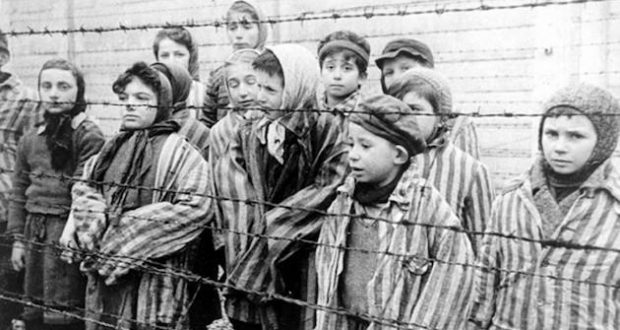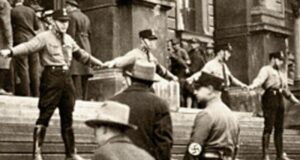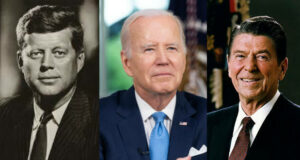Against a backdrop of surging global antisemitism that has increased 340% in two years, Monday marks International Holocaust Remembrance Day with commemorations of the 80th anniversary of the Auschwitz liberation. This year’s theme is “Holocaust Remembrance for Dignity and Human Rights.”
Since 2005, the United Nations and its member states have held commemoration ceremonies to mark the anniversary of the liberation of Auschwitz-Birkenau and to honor the six million Jewish victims of the Holocaust and millions of other victims of Nazism. The same resolution supports the development of educational programs to remember the Holocaust and to prevent further genocide.
The Holocaust era began in January 1933 when Adolf Hitler and the Nazi Party came to power in Germany. It ended in May 1945, when the Allied Powers defeated Nazi Germany in World War II. The Holocaust also sometimes is referred to as “the Shoah,” the Hebrew word for “catastrophe.”
Although the Holocaust ended with the war, the legacy of terror and genocide did not. By the end of World War II, only about 3.5 million European Jews had survived, with Nazi Germany and its allies devastating or completely destroying thousands of Jewish communities across Europe. Today, Holocaust education remains crucial as antisemitism continues to rise.
The first commemoration ceremony was held in 2006 at the UN headquarters in New York City. Nearly 2,200 people attended in person. Because the ceremony was broadcast live on television, many more people were able to view it throughout the world. The UN headquarters holds official commemorations each year. UN offices across the world and other state offices also conduct their own ceremonies.
In addition to observing International Holocaust Remembrance Day, many participating countries have established their own remembrance days that are often connected to events from the Holocaust. For example, Argentina legislated April 19, the day of the Warsaw ghetto uprising, as the national Day for Cultural Diversity. Hungary designated April 16 as National Holocaust Remembrance Day, commemorating the establishment of the ghetto in Munkács. In 1979, the United States Congress established Days of Remembrance that usually take place between April and early May to commemorate victims of the Nazi regime. The U.S. Days of Remembrance correspond to Yom Ha-Shoah, Israel’s annual Holocaust Remembrance Day.
–Dwight Widaman and news services
 Metro Voice News Celebrating Faith, Family & Community
Metro Voice News Celebrating Faith, Family & Community









